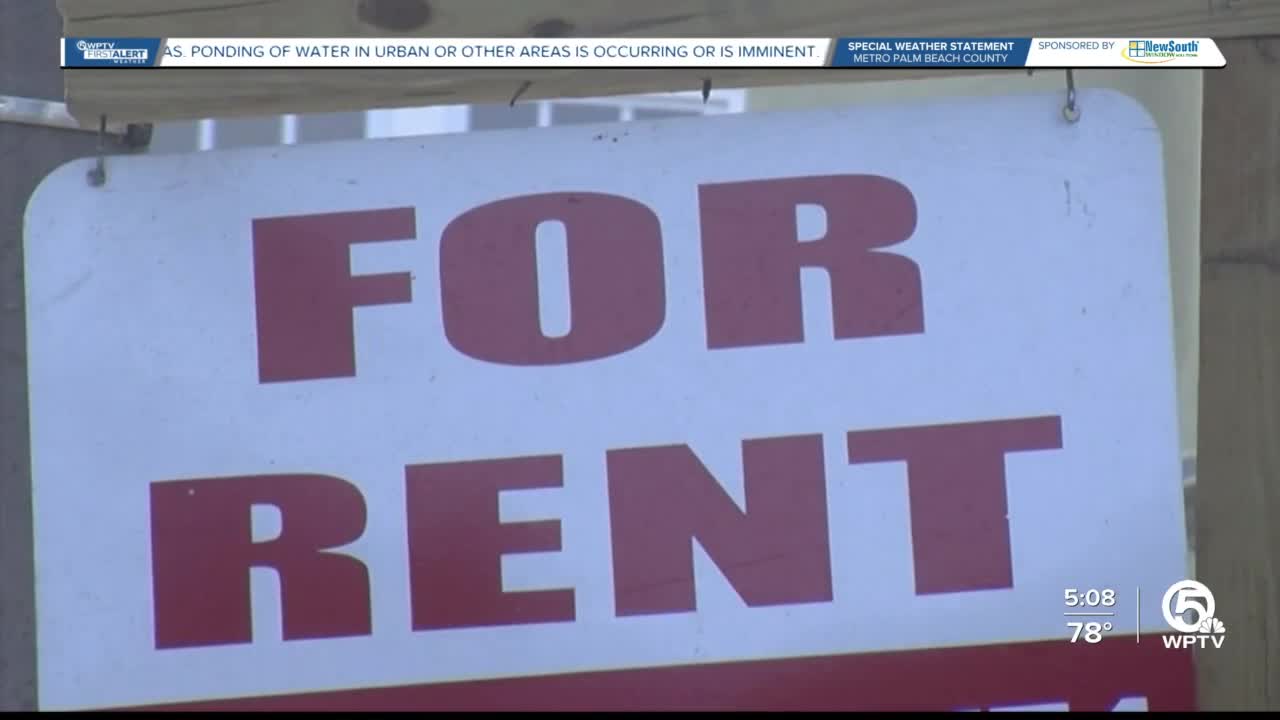BOCA RATON, Fla. — The rise in rent costs in Florida seems to have stabilized, but the affordability crisis shows no sign of lessening for residents, according to a new study released Monday by Florida Atlantic University.
Researchers found that renters across the state will be faced with inflated costs, possibly for years to come due to low housing inventory and a growing population.
Rent growth for the most part has returned to normal in Florida, with most of the measured metro areas in the state seeing rent increases at or below the national average, according to August numbers.
When analyzing the major Florida cities, the study found that Orlando experienced the smallest year-over-year increase in rent at 1.10%.
Other rent increases in the last year included:
- Jacksonville at 1.31%
- Lakeland at 2.08%
- Palm Bay, 2.33%
- Tampa at 2.69%
- Miami at 2.83%
- Deltona at 2.99%
- North Port at 4.02%
- Cape Coral at 6.90%

Real Estate News
Some Florida residents departing state in search of affordability
Rent growth on a national level for August reached 3.25% year-over-year, the study found.
"This is indicative of the rental market returning back to normal as rent usually increases by 3-5% in a typical year. Even our premiums are normalizing," Ken H. Johnson, a real estate economist with FAU's College of Business. "However, we are entering a new normal where overall rents are high, and renters are left with a prolonged affordability crisis."
The study measured where the average rent is in the 100 most populated metropolitan areas in the United States and compared it to where rents should be based on historical rental pricing trends.
Johnson and other researchers measured average yearly increases, monthly increases and how much money the typical household needs to make to avoid paying more than 30% of their income toward rent.
The researchers found that despite rent growth returning to normal, overall rents remain high, making it difficult for the typical renter to afford a place to rent since incomes have not kept pace.

Real Estate News
Housing shortage expected to worsen on Treasure Coast due to cooldown
The typical household in Miami needs a salary of $111,914 to avoid being house-poor, paying more than 30% of their income to rent, according to the study. In North Port, the salary needed is $94,817; Cape Coral, $90,916; Tampa, $86,659 and Orlando, $83,486.
The rapid rise in housing costs has forced some Florida residents to consider moving to more affordable areas of the country.
"Some people may end up leaving the area due to these costs, but it won't be enough to balance out the influx coming into the state," Professor Bennie Waller, a researcher in the study, said. "Florida has a vibrant, expanding economic base that will continue to draw people in, most likely preventing rents from falling."
Renters in Florida are unlikely to see relief until enough housing is built to meet the intense demand and combat the low supply, researchers said.
"Typically, in a housing cycle, there is a balance between the number of roofs to live under and own plus the number of roofs to live under and rent," Professor Shelton Weeks of Florida Gulf Coast University said. "Until we build enough roofs to rent and own to address the severe supply shortage, there will be chaos in the rental and housing markets, which could take years to address."



